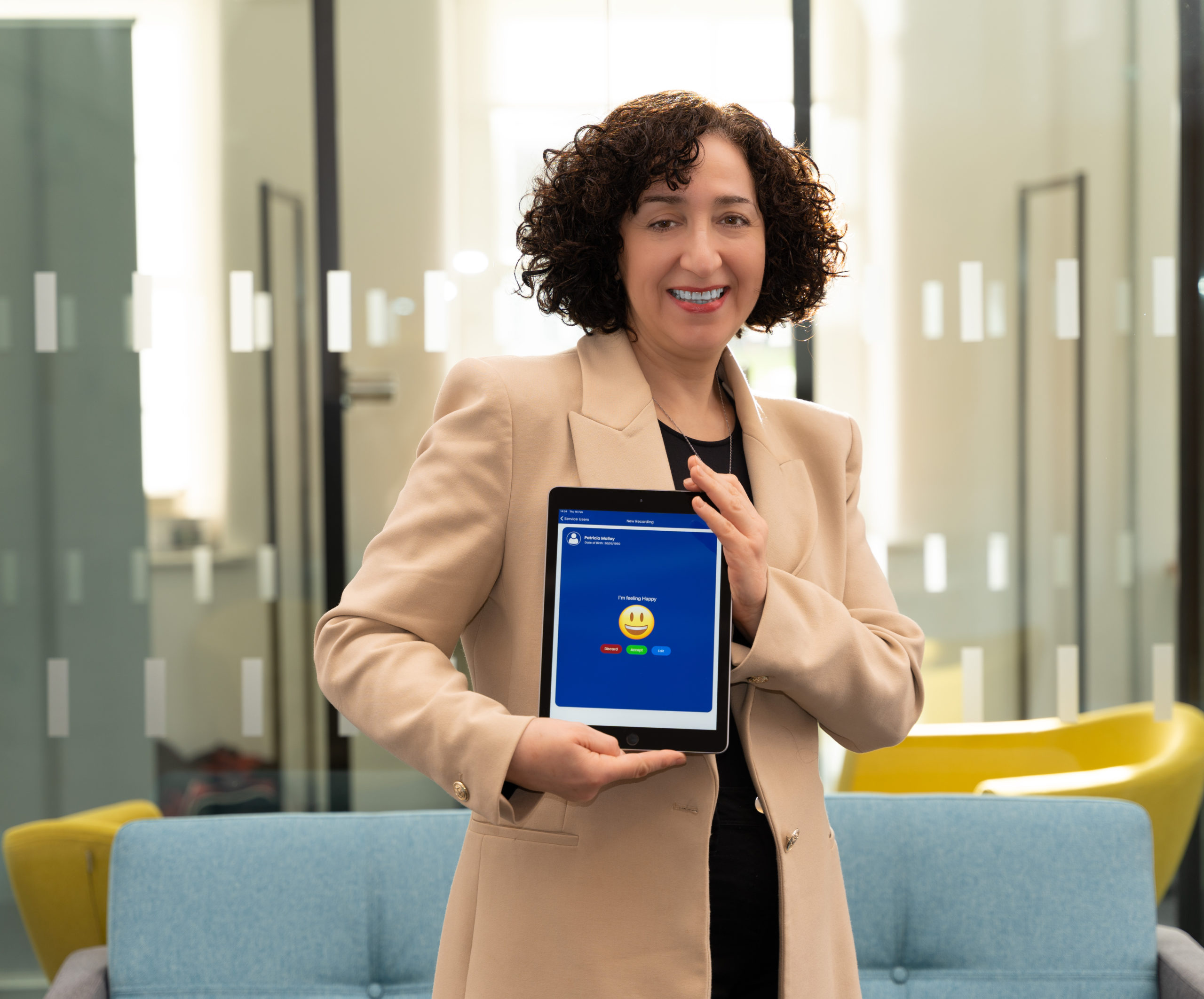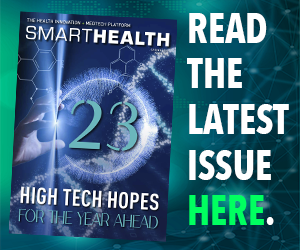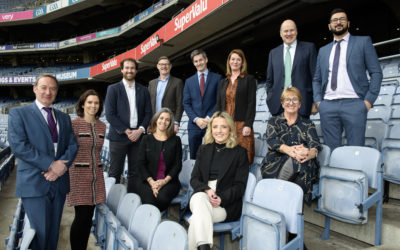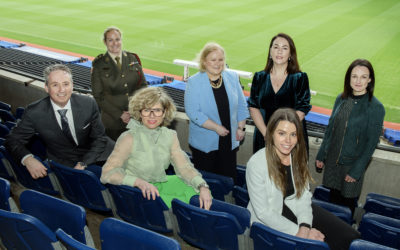SeamlessCARE’s Dr Aviva Cohen develops innovative technologies to enhance the care of adults and children with complex needs. The motivation to create projects to support those living with disabilities came in 2006 after her husband survived a severe stroke that left him with severe brain injury and communication problems.
Five years later she founded social enterprise, Neuro Hero Ltd, which led to the development of 19 therapeutic and educational apps for people with severe speech and language difficulties.
A three-year Marie Curie/ASSISTID post-doctoral research Fellowship hosted by University College Dublin and Queens University Belfast, led to investment by Enterprise Ireland and later the formation of seamlessCARE Ltd, which received a further cash injection from angel investor and former HSE Chair Frank Dolphin.
As CEO and co-founder, Cohen has led the company to create mobile app Empathic. It works by enabling carers to make short recordings of non-verbal individuals, while artificial intelligence interprets vocalisations and identifies up to 10 emotions from happy to confused.
Cohen has also completed a cross-disciplinary PhD including philosophy, psychoanalysis, psychology and the history of psychiatry. These insights into psychological and cognitive functioning continue to inform her work.
How does health innovation surprise you?
I am constantly surprised by the narrowing gap between imagination and reality. I have been astonished by many innovations that enhance the lives of those with complex cognitive, intellectual and physical challenges.
I have seen people, with almost total paralysis, use their eyes to communicate and even to play video games; and I have heard music played by children using only their brain waves.
My late husband, Steve, was paralysed on one side after a stroke and we were told that it was permanent. However, just one week after stem cell therapy Steve began to move his hand and arm. Each week we see new ways toenhance life for people with additional needs. It is a wonderfully exciting world within which to live and work.
What tech has made the greatest impact?
When I heard this question my mind raced from the first branch that was used as a walking stick to the latest in 3D printing for organ transplant. I’m not sure that it is possible to choose between the first syringe and artificial intelligence. Maybe the greatest contribution to health technology is simply human creativity.
Who is impressing you right now?
I have heard too many aspirational presentations in healthcare that are merely backed up by smoke and mirrors. I am only impressed by practical solution to real world problems. Over the past two decades I have watched the extraordinary progress of innovators in Ireland who identify a problem and work tirelessly until they find a solution.
I was lucky enough to hear a presentation by David Wall, CIO at Tallaght University Hospital. He expressed genuine enthusiasm as he listed the cutting edge technologies they are testing and implementing to enhance care.
Last year he introduced electronic patient records and now he is working towards virtual wards. David is demonstrating that it is possible to integrate meaningful technologies into our hospitals. Colin Keogh continues to deliver low cost, disruptive technologies where they are most needed.
His TeamOSV helped to support the global healthcare response to Covid19. His Rapid Foundation provides the skills and equipment that enable communities to 3D print prosthetic limbs.
Colin and his team are developing new partnerships with UN IGOs in Canada and large South American funding bodies. They continue to deliver real impact in Africa and every year Colin adds to an extraordinary list of technical achievements with humanitarian impact.
Life changing developments are being driven by talented innovators like UCD’s Antoinette Perry, co-founder of EpiCapture. She and her team are developing liquid biopsy epigenetic tests for early detection of cancer.
The first is EpiCapture-prostate; a urine DNA test that detects aggressive prostate cancer at an early stage. Research with almost 1,300 patients demonstrates that it can detect 90 per cent of aggressive prostate cancers. There is so much talent in Ireland that I see this as a moment for real optimism.
What transformations are yet to be explored?
We are just beginning to explore the impact that quantum computing could have on healthcare. Researchers often explain that today’s super computers are as simple as an abacus when compared to a quantum computer.
Most of us will never be able to follow the beautifully woven equations that describe the simultaneous activity of subatomic particles. However, we can understand the general idea. If you ask your computer to find its way through a maize, it will try every possible pathway, very quickly, one after the other until it reaches a solution.
A quantum computer, on the other hand, can try every pathway at the same time and this makes it inconceivably faster. This speed of processing will provide access to immensely complex systems including the interactions of molecules inside the human body. With this level of detailed information we will be able to design, test and produce new drugs at a speed never imagined, we can map the human genome, create personalised medicine and so much more.
The first quantum computers are already here but there is still a great deal to explore as we move from our world of binary 1s and 0s into the realm of the powerful quantum qubit.
Fast forward five years >>>
When I began my journey into health technology in 2006, we were exploring the potential of apps – now artificial intelligence and virtual reality are household words.
Today, interoperability, or the interconnectedness of systems, is dissolving boarders. The rapid pace of change makes it impossible to predict what will happen next.
I am certain that the greatest innovation in the next five years will not reflect any of the predictions we make today.






